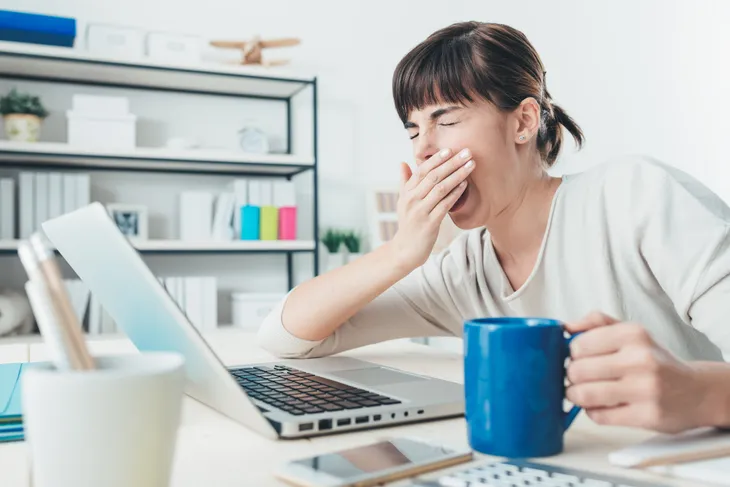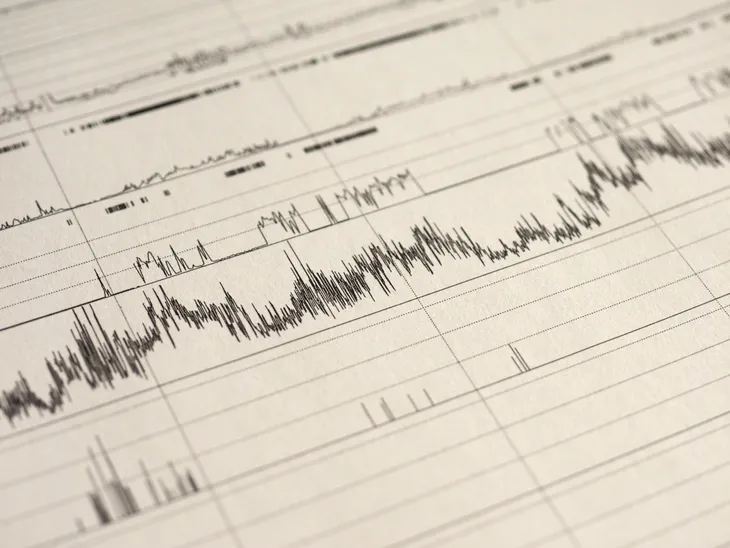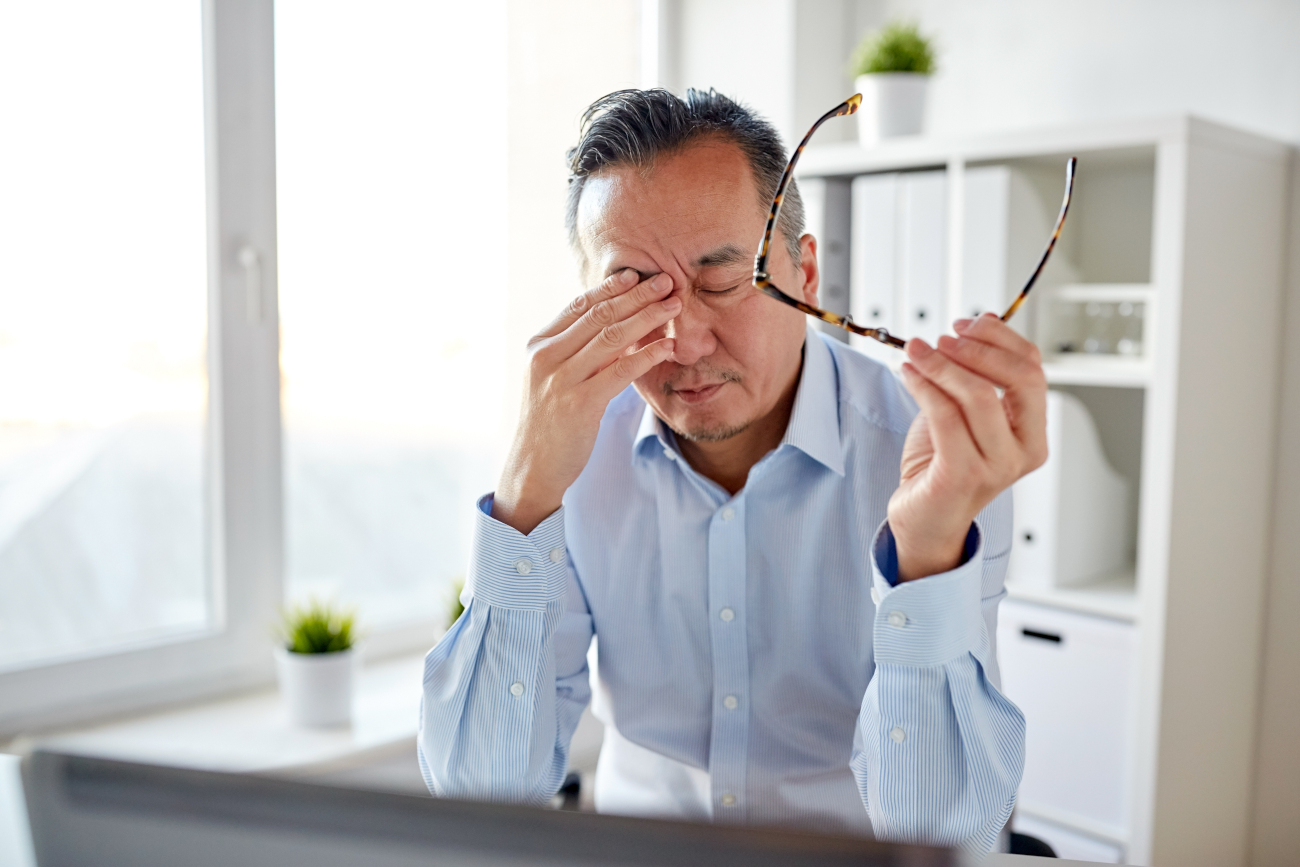Are you constantly feeling tired and exhausted, even after getting a good night’s sleep? If so, you might be dealing with idiopathic hypersomnia. Idiopathic hypersomnia is a sleep disorder characterized by excessive daytime sleepiness and long periods of nighttime sleep.
Idiopathic hypersomnia can cause a range of symptoms that can get in the way of your daily life, by making it harder to stay alert and productive. Today, we’ll explore the signs and symptoms of idiopathic hypersomnia, how it’s treated, and how it’s diagnosed.
What is Idiopathic Hypersomnia?
Idiopathic hypersomnia is a neurological disorder that affects an estimated 200,000 people in the United States, with cases on the rise. It is characterized by chronic, excessive daytime sleepiness and an inability to stay awake during normal waking hours.
People who suffer from idiopathic hypersomnia report disrupted nighttime sleep, difficulty waking up, and bouts of extreme sleepiness throughout the day. Most experience a l ack of energy even after getting the necessary eight hours of sleep.
 Stokkete/Shutterstock
Stokkete/ShutterstockSymptoms
Idiopathic hypersomnia is a sleep disorder characterized by excessive daytime sleepiness, even after an adequate amount of nighttime sleep. Individuals with idiopathic hypersomnia may experience prolonged periods of deep sleep during the day, which can cause difficulty in waking up and may last for hours.
Other common symptoms include:
- Difficulty falling asleep at night, even when feeling exhausted
- Feeling unrefreshed upon waking from a night’s sleep
- Sleep inertia – feeling groggy or disoriented for a period of time upon waking
- Trouble concentrating or focusing on tasks
- Irritability or mood swings
- Low energy levels
- Problems with motivation
- Oversleeping or sleeping more than usual
The Faces/Shutterstock
Causes
The word “idiopathic” refers to a disorder with no known cause, which is the case with this particular condition. Though it’s difficult to pinpoint the exact cause is unknown, there are theories. One possible cause is a malfunctioning hypothalamus, which is responsible for regulating sleep.
Other potential causes include genetics, underlying medical conditions such as thyroid dysfunction, or abnormalities in the production or use of certain hormones like melatonin or cortisol. It’s also possible that environmental factors like stress, lack of exercise, poor diet, or disruption in the sleep-wake cycle can trigger the onset of Idiopathic Hypersomnia. If you suspect that you may have this condition, it is important to speak with your doctor so they can help you figure out the root cause and devise a personalized treatment plan.
 Sergey Mironov/Shutterstock
Sergey Mironov/ShutterstockTreatment
Idiopathic hypersomnia is often managed with a combination of lifestyle changes, medications, and other therapies. Adopting a regular sleep schedule and avoiding caffeine can be effective in helping manage idiopathic hypersomnia. Getting enough physical activity during the day can also help regulate your sleep-wake cycle. Additionally, trying to reduce stress and anxiety levels can lead to better quality sleep.
Prescription stimulant medications have been used to treat idiopathic hypersomnia with some success. Stimulants are designed to increase alertness and reduce fatigue, though they may have some side.
Therapies such as cognitive behavioral therapy (CBT) have been used to help people manage their idiopathic hypersomnia. CBT can help identify negative thought patterns that may be contributing to the condition, as well as help people create strategies for managing their symptoms. In addition, psychotherapy may be beneficial in helping people cope with the emotions associated with this condition.
 t50/Shutterstock
t50/ShutterstockDiagnosis
Idiopathic hypersomnia is difficult to diagnose and is often confused with other sleep disorders. To accurately diagnose this condition, the patient must first be thoroughly evaluated by a qualified sleep specialist. The doctor will ask questions about the patient’s medical history, lifestyle habits, and any current medications they are taking.
In addition to a physical exam, the doctor may request laboratory tests or a sleep study. Laboratory tests can check for conditions such as anemia, diabetes, thyroid issues, and vitamin deficiencies that may be causing the hypersomnia. A sleep study may also be requested to check for abnormal brain activity during sleep.
The doctor will look for specific signs and symptoms to diagnose idiopathic hypersomnia. These include excessive daytime sleepiness that is not relieved by adequate nighttime sleep, long sleeping hours that are not caused by external factors (such as medication), difficulty waking up in the morning, and an inability to stay awake during the day despite having no underlying medical condition or external factor. If these criteria are met, the doctor may diagnose idiopathic hypersomnia.
 Drazen Zigic/Shutterstock
Drazen Zigic/ShutterstockHelp Is Out There
Idiopathic hypersomnia is a serious condition that can significantly affect your quality of life and day-to-day functioning. But, with proper diagnosis and treatment, it can be managed. It’s important to remember that you are not alone in dealing with this disorder, and there are resources available to help.
If you believe you may have idiopathic hypersomnia, don’t hesitate to speak to your doctor and explore the possible treatment options that are available. With the right care and support, you can get the help you need and start feeling better.
 NT_Studio/Shutterstock
NT_Studio/Shutterstock


